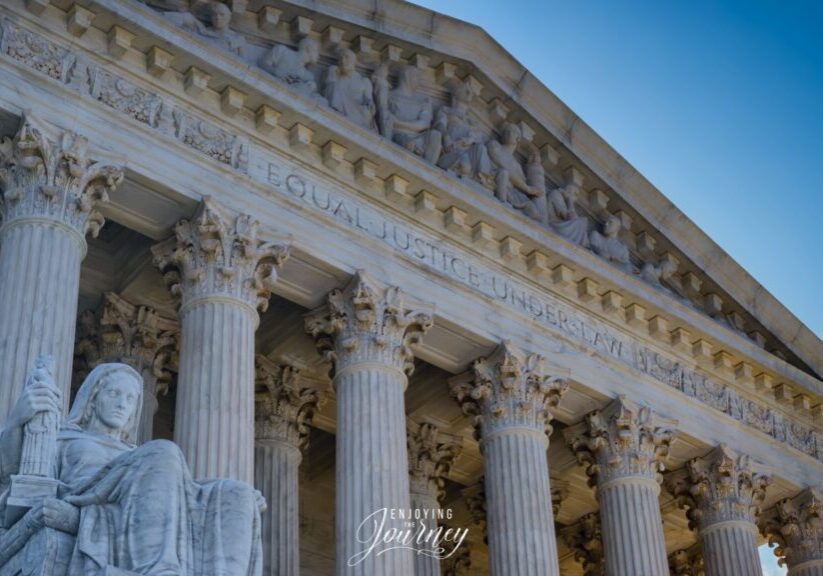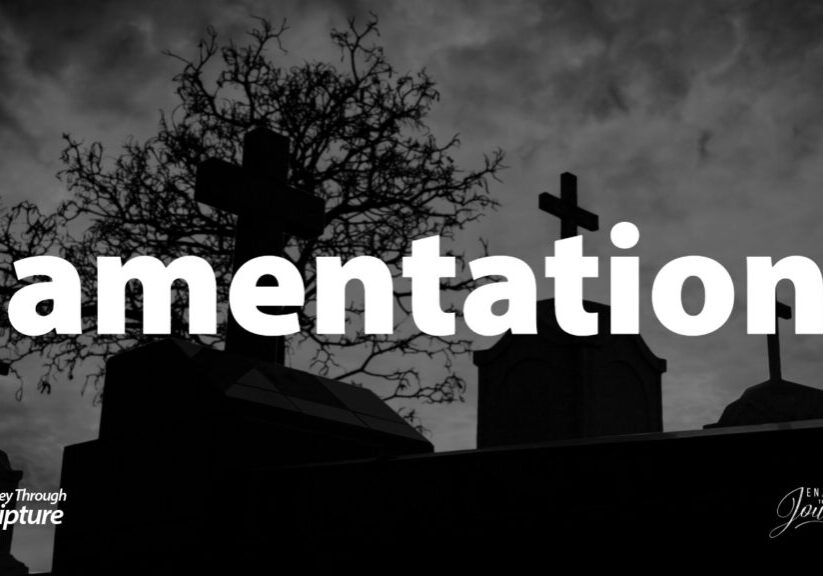
Google the word phobia. Fear has reached epidemic proportions. Millions of Americans live in fear every day. Worse, many believers have become content with allowing fear to control their lives.
The first mention of fear in the Bible is in Genesis 3:10. Adam and Eve had sinned against God and, because of their sin, are afraid of the very presence of God. Fear comes because we are now living in a fallen world. We view everything, including God, differently than the Lord intended when He created us. From that moment, fear became part of life in a broken world. Fear is a reality as long as we “live outside of Eden.”
I am glad God’s Word on the subject does not end in Genesis chapter 3! In fact, repeatedly in Scripture we are told to “Fear not.” God’s commands always come with divine enabling. The Lord does not simply tell us not to fear – He shows us how that is possible.
We know that fears will come. The question is: what will we do when they arrive?
Philippians 4:6-7 says, “Be careful for nothing; but in every thing by prayer and supplication with thanksgiving let your requests be made known unto God. And the peace of God, which passeth all understanding, shall keep your hearts and minds through Christ Jesus.”
Without question, the Apostle Paul addresses the very realm where fear lives: “hearts” (emotions) and “minds” (thoughts). It may make its presence evident through effects on the body, but it lives in the soul. Only when His peace rules that realm is there victory over fear, and this only happens when we meet the condition.
One author wrote that in these verses “the Apostle Paul contrasts worry with prayer, not so much to condemn people who worry but to provide them with an alternative.” There is an alternative! It is impossible to have victory over fear by concentrating on the fear. It is only possible by looking beyond the fear to the God who is greater than the object of our fear. Prayer brings us into His presence.
A few observations on these oft quoted but rarely lived verses:
- The word “careful” literally means “full of care.” Isn’t this the very definition of fear? Overwhelmed with worry! God says, do not be full of anxious care.
- The word “nothing” reveals the extent of the command. Wuest says that this word means “not even one thing.” Not one! This would surely include the thousands of phobias that have been identified and anything else the devil might suggest!
- The construction of the sentence means that we are not to allow fear to continue in our lives. Fear will happen but it must not become habit. It is impossible to think that no thought of worry will ever enter our minds. Rather, it must not be allowed to continue there. When fear becomes a way of life we have developed a habit that God never intended.
- The word “but” shows the alternative to the anxious care – Godward prayer. Fear turns everything IN; prayer turns everything UPWARD.
“That’s it? Prayer? But that is so simple.” Exactly! Fear is complicated – a complex mess of ideas and emotions. Only simple faith in God expressed in prayer can cut through it.
Prayer is our part (v. 6). Peace is God’s part (v. 7). Why should we expect the second without the first?
The response to fearful thoughts and feelings then must be to specifically state the need (“your requests”) to God, and thank God in faith that as surely as He has met past needs He will meet present and future ones (“with thanksgiving”).
A Word to Christians
It should be remembered that this passage was written to local churches in Philippi. This means that the issue is not only a personal issue, it is an issue for the entire body.
- We should pray for one another.
When we know that a fellow believer is struggling with fear, our response should be prayer. Not gossip. Not criticism. Prayer will help us have the attitude of Jesus toward others.
- We should pray with one another.
This should not be limited to mere corporate prayer in the church services. Believers should pray together over concerns and worries. This practice is commanded (Gal. 6:1-2) and yet rarely practiced. We spend most of our time talking to each other about our fears and little time talking to the Lord. Spiritual people recognize this as an important ministry.
- We should teach one another to pray.
New, weak, and overwhelmed believers need reminders to prayer and help to know how to pray. This should be done both by the pastor in his ministry of the Word and by every believer (Hebrews 10:24-25).
Prayer is not a trite response to people’s problems – not if it is done God’s way. Rather, it is the right response. It points people to the Lord.
Someone may say, Prayer doesn’t take the fear away. No, mere words do not remove fear. But prayer does bring you into the presence of God. Once there, HE takes the fear away.
Be sure to download the our 30 Day Prayer Guide. Click HERE to watch Scott Pauley’s full length message, Daily Prayer.
Discover more from Enjoying the Journey
Subscribe to get the latest posts sent to your email.






